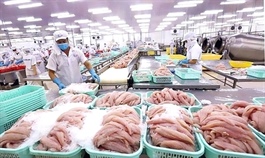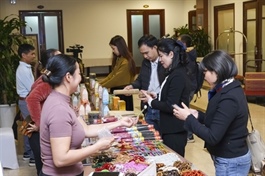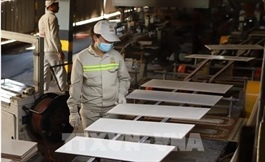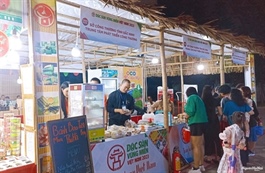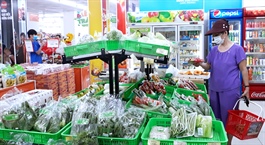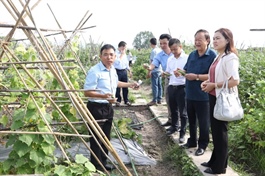Hanoi conference boosts OCOP consumption
Hanoi conference boosts OCOP consumption
To expand the market, Hanoi and localities have been proactive in setting up One Commune One Product (OCOP) showrooms.
A number of agreements supporting the link between the production and consumption of OCOP products were signed at a conference in Hanoi on December 5.
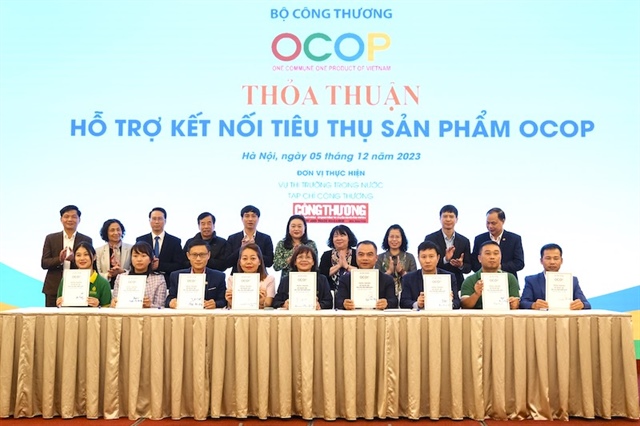
The signing ceremony of the OCOP Consumption Agreement. Photo: Khac Kien |
Bui Nguyen Anh Tuan, Deputy Head of the Department of Domestic Markets at the Ministry of Industry and Trade, says this is just one of several initiatives the ministry is undertaking to promote the use of OCOP products.
"In recent years, a series of market linkages, conferences, and workshops have been conducted to improve the supply and demand of typical rural industrial and agricultural products, key commodities of localities, and regional specialties," he said.
The ministry has compiled a database of OCOP products and a system of OCOP introduction and sales locations nationwide at http://sanphamvungmien.vn. It has also intensified promotional activities and built the image and brand of OCOP products and OCOP showrooms, Tuan added.
"Some localities have proactively set up OCOP showrooms with standardized criteria and unified identification systems," he said.
Hanoi has developed more than 85 OCOP product showrooms in nearly 30 districts, cities and towns, while other provinces are also active in setting up OCOP locations, including Quang Ninh with 30 OCOP showrooms, Bac Kan (10), Ben Tre (12) and Thanh Hoa (5).
Tuan added that all 63 provinces and cities have evaluated and classified OCOP products. Among them, more than 10,300 OCOP products achieved three stars or higher, accounting for 67.3%, while 31.2% were rated four stars, 0.8% were classified as five-star potential, and 42 products were rated five stars.
Dang Quy Nhan, deputy head of the management department for the OCOP program under the Ministry of Agriculture and Rural Development, believed that despite the rapid increase in the number of products, sustainability and policy synchronization remain a concern.
"Trade promotion activities lack coherence and fail to create differentiation. More emphasis needs to be placed on the management and monitoring of OCOP products after recognition," he stressed.
Speakers at the conference offered suggestions on policies to promote the consumption of OCOP products, expand markets, promote e-commerce sales and integrate tourism.
Hoang Hoa Quan of the Vietnam National Tourism Authority under the Ministry of Culture, Sports and Tourism suggested that with about 120 million domestic tourists, linking OCOP products with tourism will help localities effectively expand their markets.
He added that at present, tourists tend to search for tours on online platforms and like to explore rural areas. This is an opportunity for OCOP products.
However, although there are more than 10,000 OCOP products nationwide, there are still few products that have been combined with tourism.
"It is necessary to build tourism destinations combined with OCOP products that take into account infrastructure conditions, such as parking lots for up to 45 vehicles, and provide a diverse range of OCOP commodities," he stressed.







